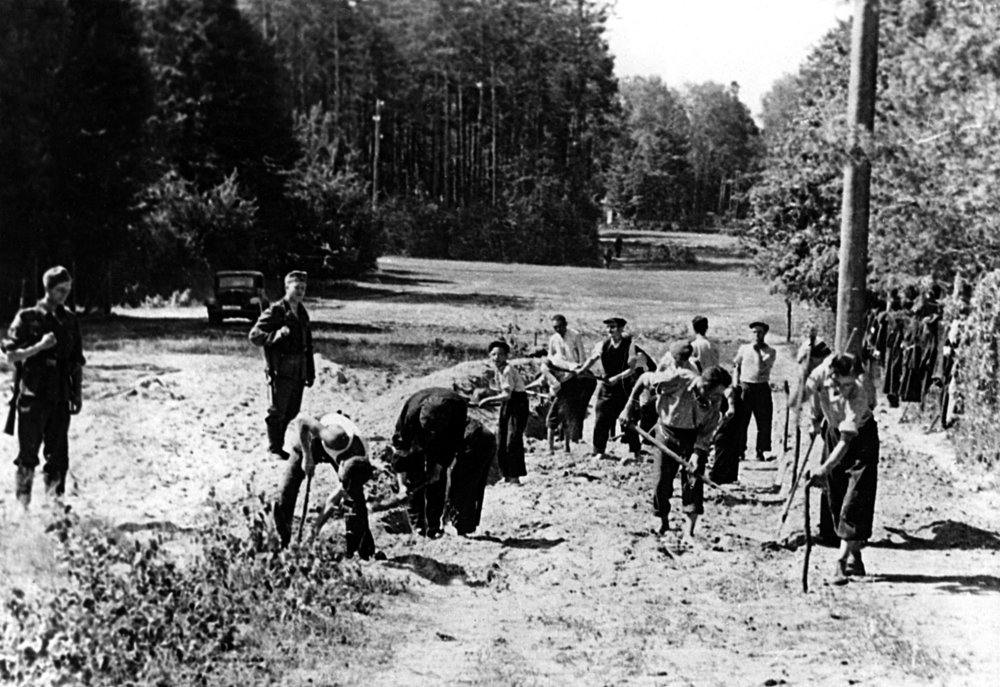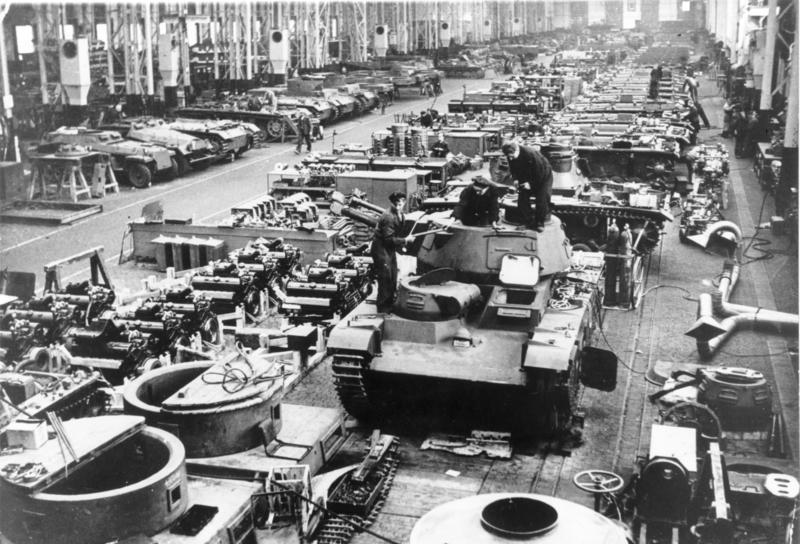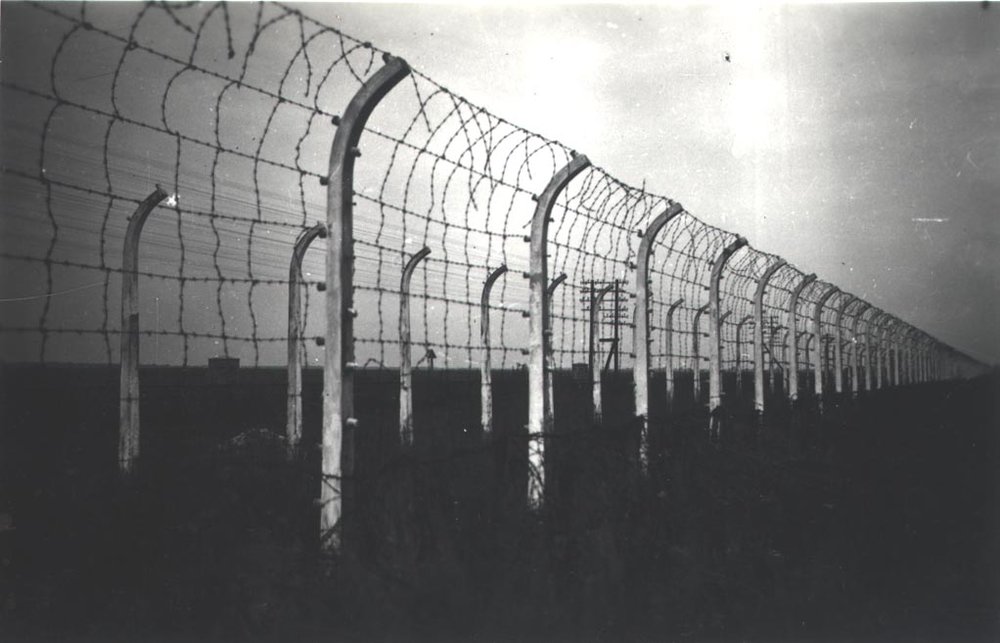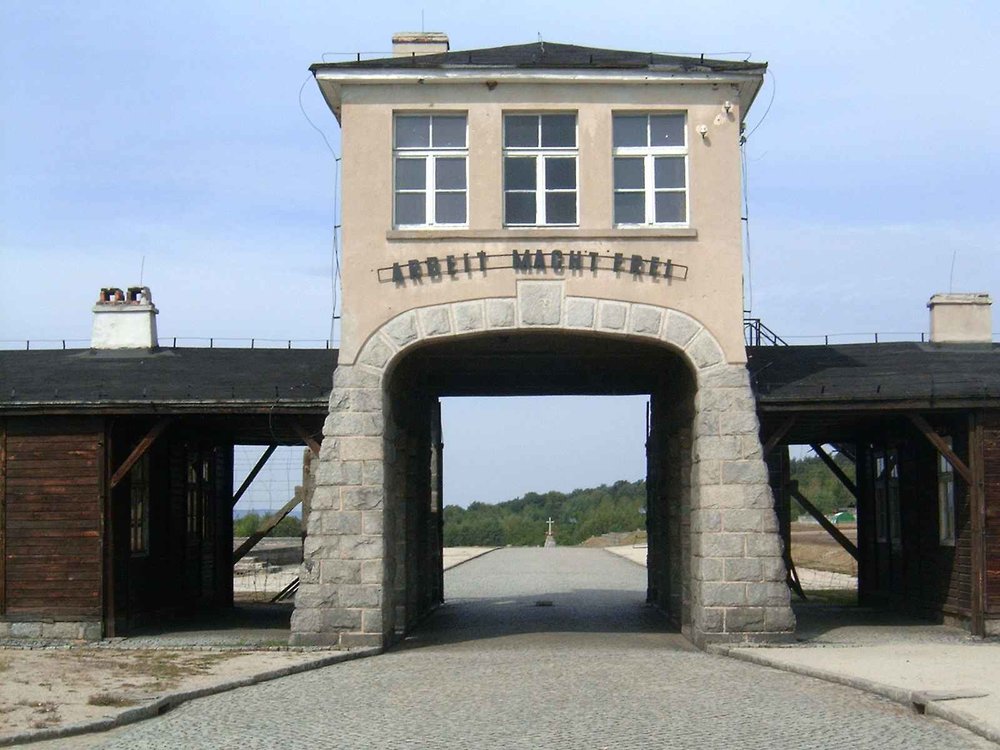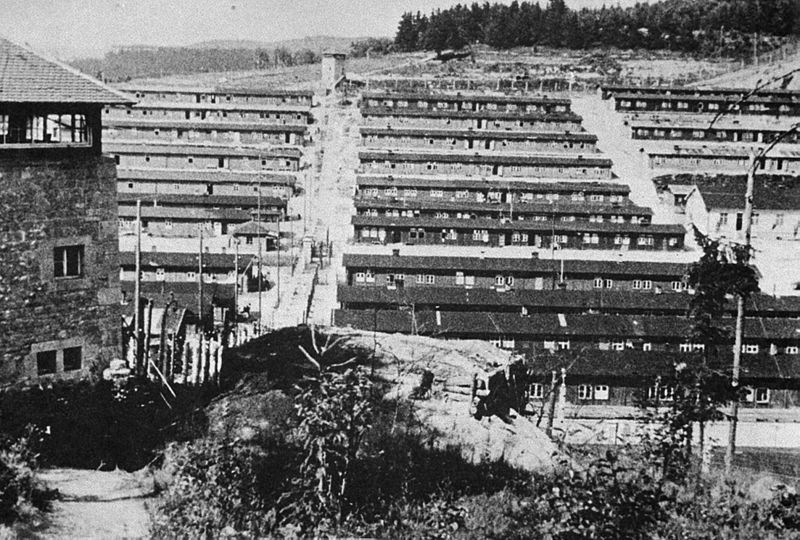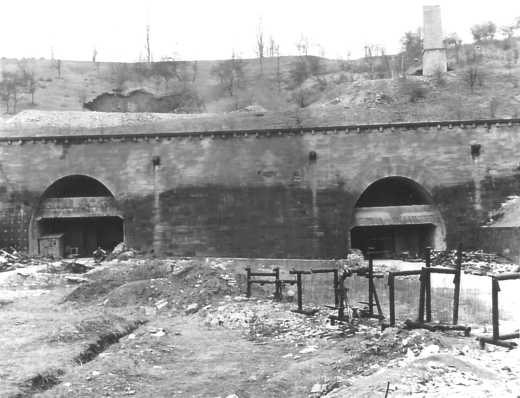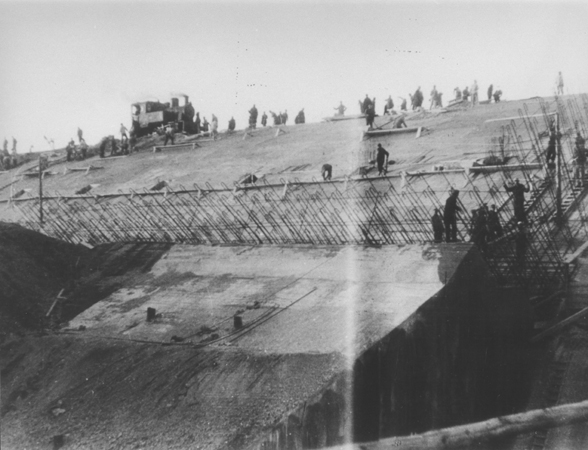EXCERPT FROM THE LONG NIGHT
Fünfteichen
“We arrived at Krupp and I was assigned to the group that supervised the electrical installations in Hall 4. … The group also included a number of other “free” foreign workers – 4 Czechs and 2 French. I was assigned to a Czech foreman and we were responsible for the lights on the ceiling and in the corridors. Since I could speak Polish, I was able to quickly and easily acquire a smattering of broken Czech.
Of course, I always tried hard to comply with the wishes of my foreman. As a Czech, he could still obtain sufficient grocery, and, in addition, he was free to return home every eight or fourteen days. He was even able to barter and thus get hold of an adequate supply of food. At lunchtime, my Czech colleague allowed me to collect his soup which he “generously” left for me. In great comfort, he unpacked his bread and nourishing bacon and spread them out before him, not allowing himself to be disturbed by my hungry eyes.
Of course I was happy to have the warm soup, but I was irritated by the sight of the crispy farmhouse bread and the thick slices of ham. I hoped that I would be invited to share this meal. I expected this kind of behaviour from anyone who was a member of the Czech nation, who, after all, also suffered under the occupation. However, his cold, indifferent demeanour forbade this contact. He revealed his complete disinterest in me by the haughty way that he gave me my instructions and because he pushed towards me only that which he did not want to eat himself. He regarded me as the lowest of the low because I was a Jew.
… “It was impossible to converse with him as one human being to another. I knew he was strictly orthodox and I often tried shyly to ask him theological questions. These fell on deaf ears and from his reaction it was clear to me that he thought our persecution and misery were acts of God. Although he did not actually condone our maltreatment, this was as far as his Christian neighbourly love extended. He even thought of the killing of a pig as a visible intervention by God. He was a stranger to genuinely Christian behaviour. He felt absolutely no sense of duty or obligation to help his fellow man, or to stand by a sick, weak or hungry person, in short, to love his fellow-man.”
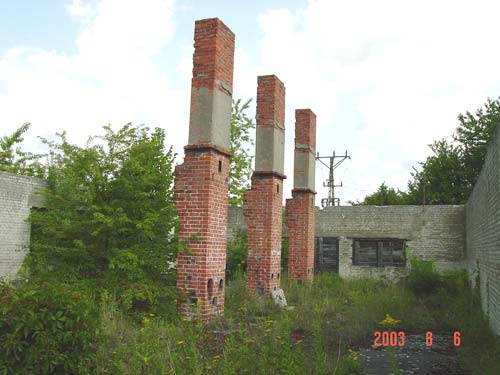
All that remains of the Funfteichen camp kitchen [Jerzy Urbaniak, 2003]

